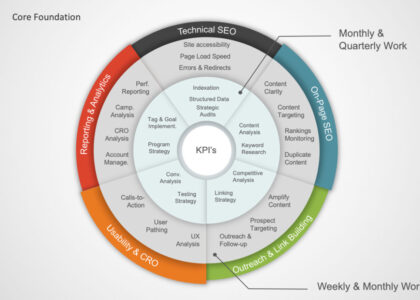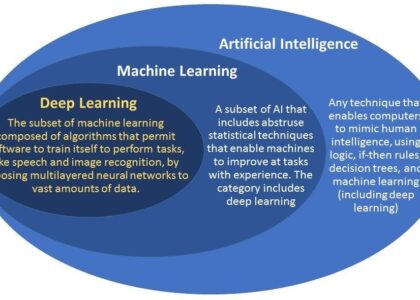The Impact of Digital Technology on Modern Society
Digital technology has become an integral part of our daily lives, transforming the way we communicate, work, and entertain ourselves. From smartphones to artificial intelligence, digital advancements have reshaped industries and created new opportunities for innovation and growth.
Communication Revolution
One of the most significant impacts of digital technology is the revolution in communication. Platforms such as social media, email, and instant messaging have made it easier than ever to connect with people across the globe. This instant connectivity has not only brought people closer but also facilitated the spread of information at an unprecedented rate.
Transforming Industries
Digital technology has disrupted traditional industries by introducing more efficient processes and innovative business models. In retail, e-commerce platforms have transformed how consumers shop, providing convenience and access to a wider range of products. Similarly, in healthcare, digital tools such as telemedicine and electronic health records have improved patient care and streamlined operations.
The Rise of Artificial Intelligence
Artificial intelligence (AI) is one of the most groundbreaking developments in digital technology. AI systems are capable of processing vast amounts of data quickly and accurately, enabling businesses to make informed decisions based on insights derived from data analysis. AI is being utilised in various fields including finance, healthcare, and transportation to enhance efficiency and productivity.
Challenges and Considerations
Despite its many benefits, digital technology also presents challenges that need to be addressed. Privacy concerns are paramount as personal data becomes increasingly digitised. Cybersecurity threats pose risks to both individuals and organisations as they navigate this digital landscape. It is crucial for policymakers and businesses to implement robust measures to protect sensitive information.
The Future of Digital Technology
The future holds immense potential for further advancements in digital technology. The continued evolution of AI, the expansion of the Internet of Things (IoT), and developments in blockchain technology are set to drive innovation across sectors. As these technologies advance, they will undoubtedly continue to shape society in ways that we are only beginning to understand.
In conclusion, digital technology has had a profound impact on modern society by revolutionising communication, transforming industries with AI integration into various sectors like healthcare systems worldwide among other areas while presenting new challenges that require careful consideration moving forward into an increasingly interconnected world.
Exploring the Advantages of Digital Technology: Communication, Efficiency, and Beyond
- Enhanced Communication
- Increased Efficiency
- Access to Information
- Global Connectivity
- Improved Healthcare
- Innovative Solutions
Challenges of Digital Technology: Privacy, Security, Inequality, Dependency, Job Displacement, and Environmental Concerns
- Privacy concerns due to the collection and storage of personal data.
- Cybersecurity threats such as hacking and data breaches.
- Digital divide leading to unequal access to technology and information.
- Dependency on technology resulting in reduced face-to-face interactions.
- Potential job displacement as automation and AI technologies replace human roles.
- Environmental impact from electronic waste generated by rapid technological advancements.
Enhanced Communication
Digital technology has revolutionised communication by enhancing connectivity and accessibility on a global scale. With the advent of digital platforms, individuals can now communicate more efficiently and conveniently, transcending geographical boundaries. Whether through social media, instant messaging, or video calls, digital technology has made it easier than ever to stay connected with friends, family, and colleagues worldwide. This increased speed and convenience in communication have not only brought people closer together but have also facilitated the exchange of ideas and information at an unprecedented pace.
Increased Efficiency
Increased Efficiency: Automation and digital tools have revolutionised the way businesses and individuals operate by streamlining processes. By automating repetitive tasks and utilising digital tools for data analysis and management, time-consuming activities are completed more efficiently. This increased efficiency not only saves valuable time but also optimises resource allocation, leading to improved productivity and ultimately enhancing overall performance in both business and personal contexts.
Access to Information
Digital technology, particularly the internet, has revolutionised access to information, offering a vast repository of knowledge on a wide range of subjects at our fingertips. This unprecedented access empowers individuals to educate themselves on diverse topics, fostering continuous learning and personal growth. Whether seeking answers to pressing questions or delving into new interests, the abundance of information available online enables people to expand their horizons and make informed decisions in various aspects of their lives.
Global Connectivity
Digital technology has revolutionised global connectivity by providing platforms that facilitate collaboration and networking on an unprecedented scale. Through digital tools and online platforms, individuals and businesses can easily connect with others worldwide, fostering innovation and cultural exchange. This level of interconnectedness allows for the sharing of ideas, knowledge, and resources across borders, leading to the development of new solutions and opportunities for growth in a diverse and dynamic global community.
Improved Healthcare
Digital technology has significantly enhanced healthcare by revolutionising patient care through various innovative solutions. Telemedicine allows patients to access medical consultations remotely, improving accessibility and convenience. Electronic health records streamline the management of patient information, ensuring accurate and efficient healthcare delivery. Additionally, remote monitoring solutions enable healthcare providers to track and manage patients’ health conditions in real-time, leading to proactive interventions and better outcomes. The integration of digital technology in healthcare has not only improved the quality of patient care but also transformed the way healthcare services are delivered.
Innovative Solutions
Digital advancements drive innovation across industries, leading to the development of cutting-edge products and services. By harnessing the power of digital technology, businesses can create innovative solutions that address specific needs and challenges in a more efficient and effective manner. This constant drive for innovation not only enhances the quality of products and services but also fosters a culture of creativity and forward thinking within organisations. Ultimately, digital technology empowers businesses to stay competitive in a rapidly evolving market by continuously pushing the boundaries of what is possible.
Privacy concerns due to the collection and storage of personal data.
Privacy concerns arising from the collection and storage of personal data are a significant con of digital technology. With the increasing digitisation of information, individuals are at risk of having their sensitive data compromised or misused. From online shopping habits to social media interactions, the vast amount of personal data collected by companies raises questions about data security and privacy protection. This issue highlights the importance of implementing robust data protection measures and regulations to safeguard individuals’ privacy in an increasingly interconnected digital world.
Cybersecurity threats such as hacking and data breaches.
One significant con of digital technology is the prevalence of cybersecurity threats, including hacking and data breaches. As our reliance on digital platforms increases, so does the risk of malicious actors gaining unauthorized access to sensitive information. Cyberattacks can have devastating consequences, leading to financial losses, reputational damage, and a breach of privacy for individuals and organisations alike. The constant battle to safeguard data and systems against cyber threats highlights the importance of robust cybersecurity measures and proactive strategies to mitigate risks in an increasingly interconnected digital world.
Digital divide leading to unequal access to technology and information.
One significant con of digital technology is the emergence of a digital divide, resulting in unequal access to technology and information. This disparity in access can create barriers for individuals and communities, limiting their ability to benefit from the opportunities that digital advancements offer. Those without reliable internet connection or access to devices may struggle to participate fully in the digital age, leading to further marginalisation and widening socio-economic gaps. Addressing this issue is crucial to ensure that everyone has equal opportunities to engage with and benefit from the ever-evolving world of technology and information.
Dependency on technology resulting in reduced face-to-face interactions.
One significant con of digital technology is the increasing dependency on devices and online platforms, leading to a decline in face-to-face interactions. With the convenience of instant messaging, video calls, and social media, many individuals now prefer virtual communication over in-person conversations. This shift has resulted in reduced opportunities for meaningful face-to-face interactions, impacting social skills, emotional connections, and overall human interaction. As people spend more time engaging with screens rather than each other, the depth and quality of personal relationships may diminish, highlighting a downside of excessive reliance on digital technology.
Potential job displacement as automation and AI technologies replace human roles.
One significant downside of digital technology is the potential job displacement caused by the increasing automation and integration of artificial intelligence (AI) in various industries. As machines become more capable of performing tasks traditionally carried out by humans, there is a growing concern that many jobs may be at risk. This shift towards automation not only raises questions about the future of employment but also highlights the need for reskilling and upskilling initiatives to ensure that individuals are equipped to adapt to the changing job market landscape.
Environmental impact from electronic waste generated by rapid technological advancements.
One significant con of digital technology is the environmental impact caused by the rapid generation of electronic waste. With technological advancements occurring at a swift pace, devices such as smartphones, laptops, and other electronics are quickly becoming obsolete, leading to a surge in discarded electronic products. Improper disposal of electronic waste can result in harmful chemicals leaching into the environment, polluting soil and water sources. The increasing volume of e-waste poses a significant challenge in managing and recycling these materials responsibly to mitigate the adverse effects on our planet’s ecosystem.






